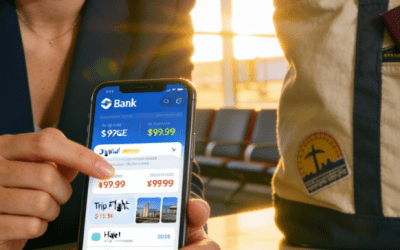Content Marketing is a very generous word, broad, I would say. Everything fits in this term: branding, service, product, communication, etc., but I will not review those general principles, I aim to analyse how the customer has evolved, highlighting what he is looking for and what makes him to engage with our company.
Content Marketing B2B and B2C
Years ago, in the B2B consultative sales model, I emphasised to my team, the importance of adding value during product presentations: the product itself does not add any value. Above all, because the description of the product is available on the web, providing the information to those users interested on further details; however, a good consultative salesperson asks questions and solves problems using the product as an excuse. As a result the customer will leave the meeting with a better perception than before join it, applying real solutions to real problems.
The sales model focused in the final consumer (B2C) is coming closer to this paradigm. Now, the customer owns all the information available and can easily compare the global offer and choose an option that differs from the rest by a matter of details. The fact that a hotel offers either saltwater swimming pools, excellent locations, downtown locations or an upscale restaurant, are features that need to be communicated visually, I mean, displayed with pictures and videos: at the end they all are facilities that are always appreciated by customers. Beyond that side of the decision based on facilities, the customer needs to believe that the destination experience will be what he or she wants/needs in order to finally make the reservation.
Key element: User experience
In the tourism industry, customer experience as benefit is a key decision – making element. I mean, a hotel should not sell services or products, but experiences.
Therefore, the ultimate objective needs to be offering unique experiences, so we will get more loyalty, a better reputation, a better service, etc., and above all, we will be able to answer questions like: is the location good enough for my needs?, are there any nearby restaurants?, what can I do during a weekend in Bilbao?, is there anything interesting going on when getting there?, I am on a business trip and have a free afternoon, what can I do near my hotel?, etc. Helping the customer to solve these “pain-in-the-neck” or problems, go a long way in adding value.
The best way to provide satisfying answers and solutions is performed by setting up a long term content marketing strategy that will allow us to know the customer we are targeting and their requirements. Customers will get responses to their inquiries through relevant, entertaining, accessible content provided with useful information. Whether you are a hotel search engine, the website of a hotel chain or any other company offering tourism services to final consumers, your final aim will be to get greater exposure, to increase engagement to your digital assets and to improve either brand positioning/image.
It is key to keep in mind that content marketing is not a direct marketing action, is a strategic commitment to add value and long-term engagement.
3 Examples of actions Marketing Content for hotels
We are describing three content marketing actions that provides a real gain of engagement with leads/customers
1. Information about events in a certain area
If we want to differentiate ourselves from the competition, the strategy should focus on having relevant and unique information about local events and points of interest nearby, so we need to create unique content to get our clients into the WOW factor.
2. Content created by customers (earned content)
In general terms, customer feedback on any aspect of the hotel or nearby locations, based on their own experience may be interesting to other customers. Video contents are great as they make easy to obtain feedback from those customers who are willing to collaborate and are also displayed in a format that favor visibility and interaction.
3. Trip customised recommendation
It is all about customisation and ideas those who are familiar with the area. Your customers will be delighted with your customised content. They are, not just interesting, but they also include your own recommendations to bring that valuable factor, in travel words, provided by locals.





